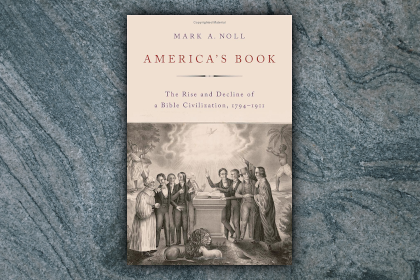Responding to Persecution (Part 2)
Image

In my previous post I introduced the subject of persecution and how the early church responded to it. As explained there, I’d like to take this post to summarize and extend an excellent discussion of Paul’s teaching on the subject in 1 Thessalonians by Michael Martin in the New American Commentary volume on Thessalonians.
In general, Paul is not playing games with his flock. He “did not attempt to diminish the severity of the Thessalonians’ persecution. Rather, he sought to broaden their vision” (Martin). Rather than fixating on themselves, and how hard and unfair their lives were, Paul called their attention to the Big Picture—to the far greater realities that were at work. These are not platitudes; they’re facts, and they place God’s people in a position to survive, to endure, even to thrive in the most unjust and painful situations.
So what are the big ideas?
- If you’re a believer, you’re not suffering because people hate you. You’re suffering because they hate your Lord, the one they crucified, and because they hate his plan for his creation. “They suffered for the kingdom of God, not needlessly” (Martin; cf. 2Th 1.5). There is no greater cause, and there is no greater payoff. Jesus told of a man who found a pearl of great price and sold all he had to buy it (Mt 13.45-46). Seriously, now—what greater cause is there? Consider what sacrifices people will make for other, far lesser causes; is the path that God has asked you to walk really all that extraordinary?
- Jesus is not asking you to walk a path any more difficult than the one he has already walked for you (1Th 1.6-7). This is a point Peter also makes when he remarks that “Christ also suffered for us, leaving us an example, that ye should follow his steps” (1P 2.21). When we follow him, “despising the shame” (Heb 12.2), we demonstrate that our faith in him is genuine—that there’s substance to it. And that in turn gives us further motivation and strength to continue to endure.
- Like any difficulty, persecution is temporary. At some point—sooner than you can believe while it’s happening—it will be over. And then you have two things to look forward to—
- Like the athlete suffering through 3-a-day workouts, you can anticipate the strength benefit you will derive from the exertion. “No pain, no gain” may be trite, but it’s wisdom culled from the experience of millions. As the fire refines gold, so suffering refines and improves and strengthens God’s people (1P 1.6-7). Embrace it.
- God’s plan is to present you perfect at Christ’s coming (1Th 1.10, 3.13). You will not only be stronger in this life, but you will be ultimately sanctified, glorified, when the final reckoning comes.
- When we look around in our persecution, we see brothers and sisters suffering alongside us. We are not alone. In the case of the Thessalonians, they knew of Paul’s persecution in both Philippi and Thessalonica (1Th 2.2), and they knew of the suffering of the first Christians in Jerusalem, persecution in which Paul himself had long before played a role (1Th 2.14). This isn’t “misery loves company”; it’s support from teammates united in back-breaking effort.
- We have infinite resources freely available to us in the struggle. We are indwelt, empowered, and gifted by the Holy Spirit (1Th 1.6); God himself gives us the power to “increase and abound” (1Th 3.12) and will “sanctify [us] wholly” (1Th 5.23)—yes, he surely “will do it” (1Th 5.24). This is not a battle God will lose, and if we are in him, we will not lose either.
- Justice will come. Evil will be judged; the first will be last (1Th 2.16). It’s just the 3rd inning; it’s too soon to take the score seriously. Things are not what they seem.
Martin concludes his summary with these remarkable words:
Knowledge of such truths does not make suffering disappear, nor does it mean that suffering is good or should be sought. But suffering is tolerable when it has purpose, when something of value is gained by it, and when those who inflict it do not do so with impunity. A sufferer gains comfort in the comradeship of shared suffering and can give thanks in all circumstances given the knowledge that the suffering will eventually give way to victory and reward. Peace is the result, an enduring and genuine sense of well-being even in the midst of distress.
May God give us grace to represent him well when suffering comes.
And may we not be whiners in the meantime.
Dan Olinger Articles
Reposted with permission from Danolinger.com.
Dan Olinger Bio
Dr. Dan Olinger has taught at Bob Jones University since 2000, following 19 years as a writer, editor, and supervisor at BJU Press. He teaches courses in theology, New Testament, and Old Testament, with special interests in ecclesiology and the Pauline Epistles.
- 99 views

Discussion